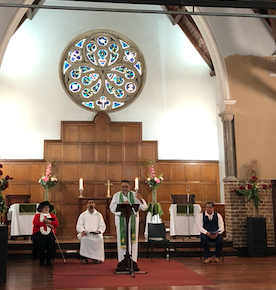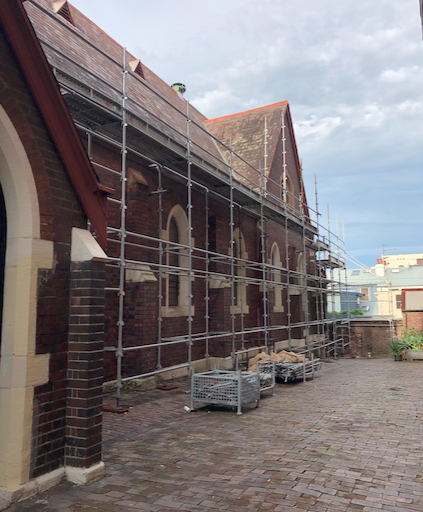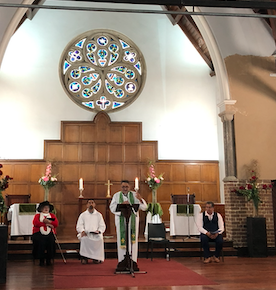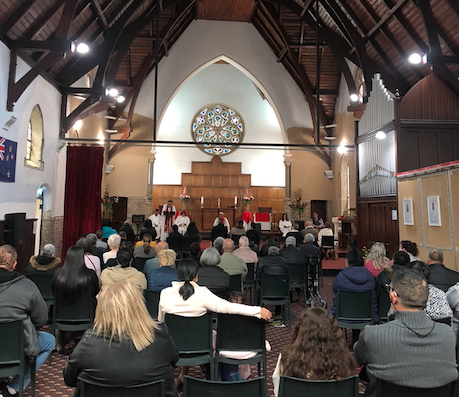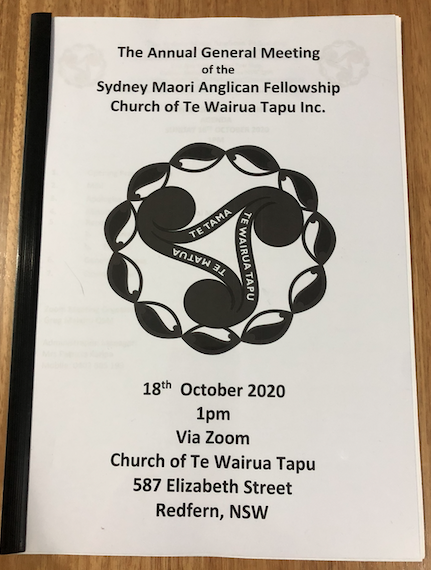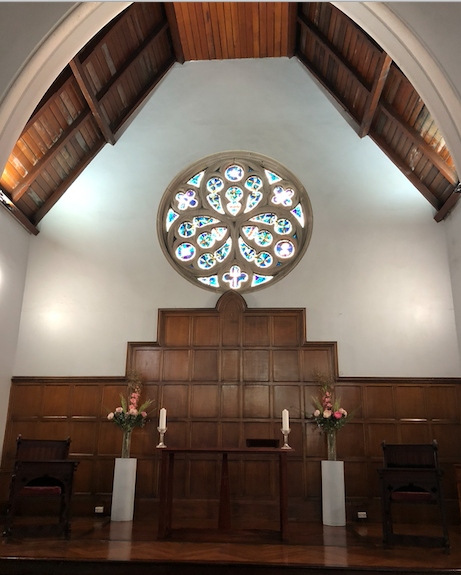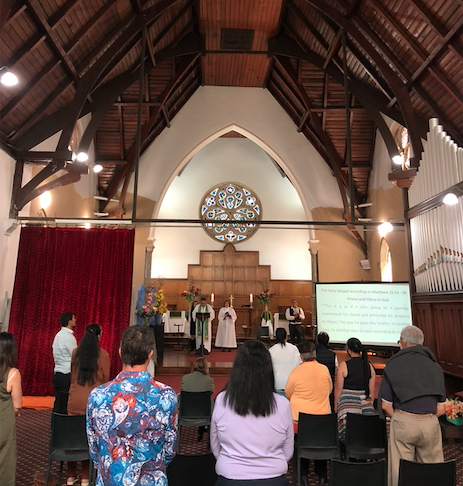
Gifts and Talents!
Sentence: But since we belong to the day, let us be sober, and put on the breastplate of faith and love, and for a helmet the hope of salvation. Thessalonians 5:8
Collect: God our creator, you entrust each of us with great treasure. Help us to be responsible stewards of the gifts and skills you have given us. May we honour the trust you have in us and use our talents as generously as you have given them. Through Jesus Christ our Liberator, who is alive and reigns with you, in the unity of the Holy Spirit, one God, now and forever. Amen
Readings:
Judges 4:1-7
Psalm 123
1 Thessalonians 5:1-11
Matthew 25:14-30
Tena koutou e te whanau o te Wairua Tapu.
In today’s gospel reading, Jesus tells his listeners a story about the talents and the Kingdom of God. He says, “It’s like a man who is going away on a journey, and he leaves his servants with a certain amount of money- each according to their ability. To the first he gave 5 talents, to the second, 2 talents and to the third servant, 1 talent.” The servants are entrusted with something special and they each need to decide what to do with what they have been given.
The first servant takes his talent or his gift, and invests it; and through smart management, sees the talent start to grow. In fact, he is able to double the owner’s original amount. The second servant, does the same thing. He takes his two talents, and is able to double what he has been given. Now the interesting thing about both of these servants, is that they were able to take what the master had given them, and they were able to recognise that what they had been given by the master was meant to be used. Only in the decision to risk using what they had been entrusted with, were they able to multiply that gift for the use in the Kingdom of God.
For both of these servants, it was a leap of faith, to risk perhaps losing the money, or if we are talking about a real talent, or spiritual gift, to risk making some mistakes. But they did it, and because of that ability to take real chances, to step out in faith, they were able to do big things and get a pat on the back when their master returned.
For some reason, the third servant wasn’t able to take the same risk. He took his portion of money and he buried it in the ground. Maybe he was protecting the owner’s money or maybe he was just keeping it safe. But this servant, for whatever reason, wasn’t able to take that leap of faith to try to use what he had been given.
Sometimes we find ourselves in similar situations- where we are given opportunities to use our talents, our time, our energy and our spiritual gifts- we see an opportunity, but we are to afraid that we might fail or we might use them in the wrong way. We might see a chance to do something special, something that we know we have the ability to do, and we have the resources, but we lack the courage to step out in faith and use what God has given us.
In my own life- it took me a long time to answer the call to ministry- to take the leap of faith and go to theological college. I kinda knew I had gifts for ministry- people would tell me, you’d make a good minister, but I was always a little bit apprehensive! Why? Because I was already involved with the church and I didn’t want to get that close to God. But in reality, I didn’t want to fail God, be judged by others or risk looking stupid in front of people. It wasn’t until I was willing to step out in faith and risk everything, that I was able to see, I actually could be used by God to do more ministry than I first thought. In life, we learn that each of us are entrusted with talents or resources that God gives us to use- not to bury them.
But what if this story is not about God being the master or it’s not even a story about the Kingdom of God at all! Instead, its a worldly story. The master is a very wealthy landowner. He’s rich beyond all measure, and he leaves his three top employees a certain amount of his property to take care of while he goes on a trip and he gives each of them a portion according to their power or status in his business.
If we read this story in it’s context, the people who Jesus would’ve been talking to would’ve been peasants in Palestine. When he mentioned a wealthy landowner, and the talent, worth millions of dollars, it would’ve been very clear to the peasants who the wealthy person represented. The people would have known right away that Jesus was speaking of the people who owned their homes, the ones who would raise taxes, the ones with the power to alter the laws, put constraints on their freedoms, and to keep them in a state of poverty.
When Jesus said that the rich man had put his 3 top guys in charge, the people would’ve also known what that meant; that the three men would have orders to multiply the money in anyway they saw fit- including putting even more pressure on the poor. The system was corrupt, and the rich continued to get richer and the poor poorer. Is this at all sounding familiar to you? Throw in racial profiling, deportations of our people and you would think Jesus was talking to us.
Anyway, let’s get back to the story. When the rich man returns, the first two servants get rewarded for doing what they were charged to do… make money. The third servant, because he hid his talent, gets punished- he’s cast out. But it’s this third servant, in this different perspective, who might be called the hero. Because it’s him who saw the master for who he really was. He saw what he was supposed to do and realised that in order to do it, he would have to buy into and support a corrupt system. But he refused. And he tells his boss- “I know you are a hard man- I don’t want any of this… here’s your money back. ”
There’s a key line in this parable, in verse 26, when the master asks the third servant- ‘so… you thought I was wicked, did you? That I reap where I don’t sow?’ The master was calling him out on his perception…So the boss sacks him! “You go be a peasant yourself now- you can’t have this life of luxury anymore. ”
In other words, the third servant knew the risk he was taking. He was willing to risk being poor himself, to have to live among the oppressed, in order to not participate in the corruption. It was his ultimate sacrifice for the people. In this interpretation, Jesus is giving the people an illustration of how the world is- and that sometimes we must be willing to risk and sacrifice our own comfort for the greater good- sometimes we have to take even one step against the system- not buy in- not condone the oppression around us. Social justice….There seems to be a lot of this happening today, and yet, governments still want to keep the people poor.
So, there are at least two ways to interpret this story- but a common thread that runs through both of these interpretations is the perceptions of each of the servants; what they thought about the master that determined his choice of action.
The questions I have for you today, both as individuals and as a church is, how do you perceive God? What is your relationship with the God who has given you life? And, how do we view this creator of all things who has entrusted us with gifts and talents?
If we are like the third servant, and we see God as an angry harsh God, waiting to hit us over the head with a lightning bolt when we mess up, then there’s no way we can risk anything- there’s no way we will ever be able to step out in faith to use what God has given us… if we are afraid of consequences- if we are motivated by fear, then we’ll never be able to do great things and our gifts will never grow. But you’re thinking, ‘The third servant DID get punished, the master DID turn out to be harsh…. He got thrown into the street with the gnashing of teeth stuff!’ And I would say to you that it was his own interpretation, his own perception of who God is that put him there- because that’s the only place that is open to you if your view of God is a angry God and you put yourself forever in a place of torment. Don’t worry I grew up with an angry God, and I loved him!
But how can we be free to enjoy the wonders of salvation through Christ if your image of him is one of fear and condemnation? Don’t we profess to believe that ‘there IS no condemnation for those who are in Christ? That nothing can separate us from the Love of God in Christ?’ (Romans 8)
In the first two servants held an understanding of who the master was- and knew that when it came right down to it, there was really no risk at all. They understood that they serve a wealthy, beyond measurable, well meaning and generous God, who has given out more than we can ever think, see or imagine. We serve a God who has blessed us with gifts beyond our imagination and that the only risk involved is in not using those gifts at all. So there is no fear of messing up, because when you’ve experienced Gods love, you realise that love is perfect, and perfect love casts out all fear. And yet, maybe some of you are thinking; I know… I know… I have to do it, I know I have gifts, I know I’m supposed to be doing something, and I’ll do it…. I’ll do it…. But not yet… the timing isn’t right… I have to be more prepared first, I have to get more money first, I have to have more time first… I‘ll do it… tomorrow… well you know what whanau? Tomorrow isn’t promised!
We only have today to work with, and we can’t afford to let one more day pass without accepting the opportunities that God has put before us. We can’t wait any longer before we use our gifts, our talents, our money and our resources for the things that God intends for us. We can’t let one moment pass before we accept the graciousness and the abundance that God has poured out on each one of us, to allow us to be all that we are destined to be in Christ. The opportunity is there for each of us to be more than we ever dreamed of, and for our gifts to be used in ways we never thought possible.
It’s the ‘what would you do if you could do anything’ moment- you know, the ‘what would you do if you weren’t afraid’ moment, the ‘Peter getting out of the boat moment,’ even the ‘I’m getting out of bed on my only day off (Sunday), to go to church’ moment. It doesn’t have to be big, whanau, but it’s the moment that you realised that there was more out there that God was calling you to do than you already were. Excellence and greatness is within your grasp because you felt just a hint of it inside you and you allowed yourself, maybe for the first time, to dream of tapping into it. That’s my role now, to challenge you. What are you doing?
And God continually pours it out, saying “here you are a teacher: teach my children” “Here you are a musician: then sing and play for me,” “Here’s some money: do something special with it”… “Here’s JOY! I’ve given it to you… use it! be joyful… here’s hope… share it with everyone! Here’s peace… spread it around…”
IS there an end to the blessings we’ve been given? My prayer for you today is that you can Feel what God has given to you, BE the unique person God has made you…LIVE the dreams God has shown you what God has planned for you to be. For God knows the plans for you… to prosper and not harm.. to give you hope and a future… and you know what? You can’t mess up God’s plan… when it comes right down to it… there’s no risk at all… just take the step..
God bless all of you today…
The Venerable Kaio Karipa
Chaplain
Sydney Maori Anglican Fellowship Church of Te Wairua Tapu
www.tewairuatapu.com.au

